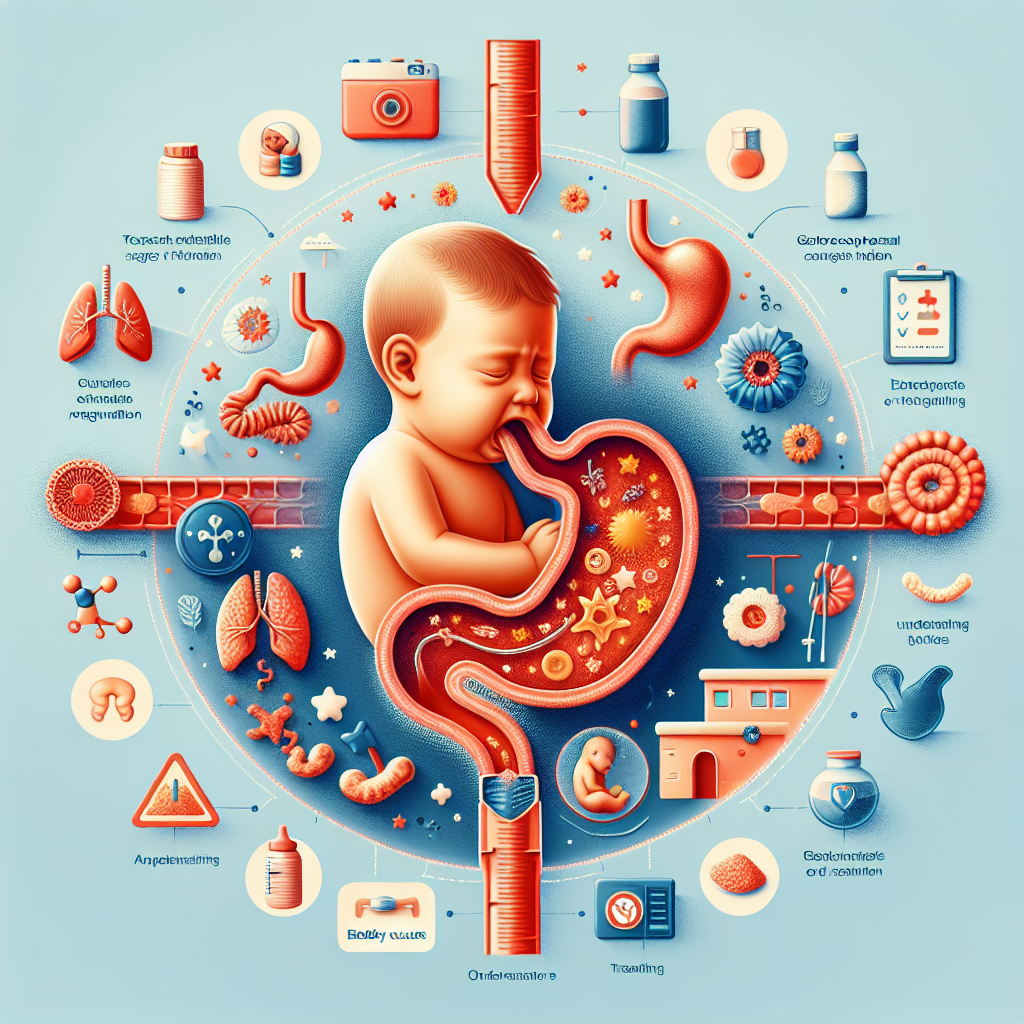Gastroesophageal Reflux in Babies: Essential Information for Parents
When it comes to children's health, parents are always looking for detailed information and helpful tips to navigate through a variety of situations that can arise in the development of little ones. One area of concern is gastroesophageal reflux, a common condition in babies but one that can be successfully managed with the right information. Therefore, this article aims to provide you with a comprehensive guide on how to recognise, understand and manage gastroesophageal reflux in babies.
What Is Gastroesophageal Reflux?
Gastroesophageal reflux is the backflow of stomach contents into the esophagus and sometimes into the mouth or airway. Although it may sound alarming, it is important to know that it is a fairly common phenomenon in babies, which is due to the digestive system that is still maturing. Most children outgrow this condition within the first year of life as their digestive system develops and matures.
Symptoms of Gastroesophageal Reflux
Some of the signs that can indicate the presence of reflux in babies include frequent regurgitation or vomiting, irritability after meals, coughing or even wheezing. It is crucial to distinguish between normal reflux, also known as "physiological reflux", and a more severe form, called "gastroesophageal reflux disease" that requires medical intervention. If you notice that your baby is in persistent discomfort, it is important to consult a pediatrician.
Causes of Reflux in Babies
The causes of reflux in babies are varied, but the main factor is due to the immaturity of the lower esophageal sphincter. This is a ring of muscle at the end of the esophagus which, when mature, closes tightly and prevents stomach contents from going back up into the esophagus and mouth. Only liquid feeding, horizontal positions in which babies are kept and high frequency of feedings can also contribute to the higher incidence of reflux in babies.
Reflux and Child Development
Although in most cases, gastroesophageal reflux does not affect the long-term development of the child, it is important to monitor it closely. Complications can include discomfort while eating, impaired sleep and, in rare cases, can lead to breathing problems or difficulty growing. That is why it is essential that parents are well informed to be able to identify the warning signs and seek medical assistance when necessary.
Treatment and Management
Of course, if reflux is diagnosed, there are several methods of management and treatment. Changing the position during and after feeding, i.e. keeping the child upright for 20-30 minutes post-meal, can help reduce symptoms. In addition, some changes to the mother's diet when breastfeeding or formula can help to relieve reflux. In certain situations, the doctor may recommend drug treatments or, in rare cases, surgical interventions.
Food and Reflux
Regarding feeding, it is especially important to observe how the baby reacts to different types of food or milk formulas. Sometimes the necessary adjustments may be minor, such as using anti-reflux milk formulas or thickening the milk with special baby cereals under the supervision of a specialist. Also, it is essential not to overfeed babies, as their stomachs are small and fill up quickly, which can worsen reflux.
Practical Advice for Parents
In addition to medical interventions, there are a number of practical tips that can help manage gastroesophageal reflux. For example, it is advisable to pay attention to the baby's signs of satiety and avoid intense activities immediately after meals. A quiet lifestyle and regular routines can also improve reflux symptoms.
Importance of Medical Consultations
Last but not least, it is essential to maintain open communication with your baby's pediatrician. Monitoring your child regularly, discussing any changes and concerns, and following medical advice are crucial steps in optimal management of gastroesophageal reflux.
Conclusion
We hope this article will give you the information you need to better understand gastroesophageal reflux in babies and feel more confident in your ability to manage it. Remember that every child is unique, and if you have any doubts or questions, it is best to discuss them with a health professional. With care and attention, reflux can be just a small part of the parenting journey, leaving room for the healthy growth and development of your little one.
For more information and resources, we encourage you to explore the relevant sections of our store and subscribe to our newsletter to stay up to date with the latest news and parenting tips.



















































































































































